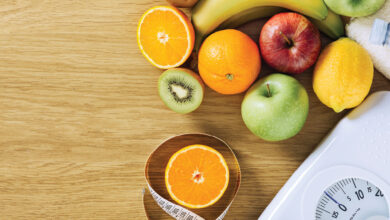Added sugars and their effects on weight loss efforts

Added sugars could be compromising people’s effort to lose weight and get fit.
A 2009 report from researchers with the American Heart Association urged people to limit their intake of added sugars while noting that Americans get most of their added sugars from sugar-sweetened beverages, including sodas. A 2010 study led by a researcher from the Harvard School of Public Health noted that consumption of such beverages has increased considerably in recent decades, which has tracked positively with rising rates of obesity over that time.
But pinning the bulk of the blame for rising obesity rates on sugar-sweetened beverages would be a mistake, as such drinks are not the only popular source of added sugars. Candy, baked goods, sugary cereals, and even some dried fruits contain significant amounts of added sugars.
Added sugars are considered empty calories, which means they’re high in calories but not in vitamins, minerals and nutrients. Anyone attempting to lose weight and keep lost weight off should examine the foods and beverages they consume to determine if these items, which may be marketed as healthy or at least considered so by unsuspecting consumers, are high in added sugars.
Simply checking ingredients labels for the term “added sugars” may not be enough, as the Office of Disease Prevention and Health Promotion notes that added sugars go by many different names, including:
- brown sugar
- corn sweetener
- corn syrup
- dextrose
- fructose
- glucose
- high-fructose corn syrup
- honey
- invert sugar
- lactose
- malt syrup
- maltose
- molasses,
- raw sugar
- sucrose
- trehalose
- turbinado sugar
The ODPHP notes that these sugars may be found in foods people wouldn’t otherwise see as potentially unhealthy, such as pasta sauces. That only underscores the importance of reading labels carefully and learning what to look for on such labels.
“But pinning the bulk of the blame for rising obesity rates on sugar-sweetened beverages would be a mistake, … Candy, baked goods, sugary cereals, and even some dried fruits contain significant amounts of added sugars.”




